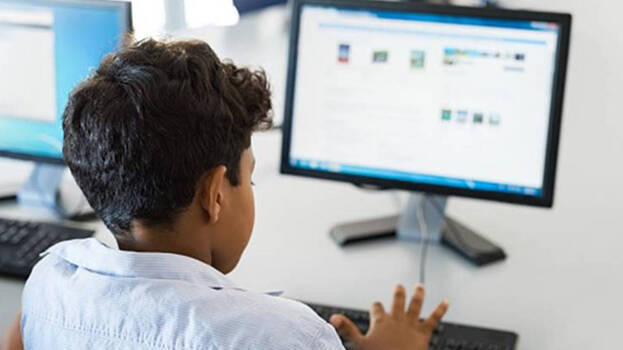

THIRUVANANTHAPURAM: There was no other option for children other than online classes during the time of the deadly pandemic. The survey report of Kanal, an NGO, which conducted a study on the pros and cons of the online system and to know the views and opinions of children about it, is out. Kanal is an organization that fights for the rights of the children.
No extracurricular activities other than learning are being held via online class. Not only that the students are not able to discuss and openly express their problems with teachers. Majority of the students who attended the survey said the online exams are not fully effective. One of the reasons pointed is the problem faced by children with slow typing speed.
The children also mentioned the difficulty of using a gadget by two or more children in the house. The extra classes conducted by some schools and the large syllabus that is completed in a short period of time and the homework given as a part of it have resulted in the need to use a mobile phone again and the screen time of many has increased substantially. Online classes are not properly used by children not supervised correctly and children not interested in learning.
The problems faced by children studying in plus one are serious. Many of them have neither met the teachers or classmates personally. They face difficulty in clearing doubts and understand lessons accurately as they have not been able to maintain a good rapport with the teachers. Many of the students make use of the recorded videos than live classes.
The survey conducted by Kanal mainly shows that there is no system to accurately understand the efficiency of online classes. Anson P Alexander, director of Kanal, while talking to Kerala Kaumudi Online said that when the goal of online classes is reduced to completing lessons, it does more harm than good to children.
One of the best educational habits of the lockdown time in UNESCO list is that it is closely linked with the quality of education provided. We can see this shortcomings in the current online classes in Kerala. At the same time, Anson points out that completing the syllabus for the purpose of exams only reduces online classes to lessons.
It is also important to pay attention to the mental and life skills of the child. The survey underscores that ensuring the quality of online classes in Kerala by conducting an examination similar to the model of the Program for International Assessment would be beneficial for raising the standard of education in the state.
The study covered children from 14 districts in Kerala from primary level to higher secondary level. Information was collected from students through online form and face-to-face contact over the phone. Of these, 11 per cent are primary school students, 15.8 per cent are upper primary students, 33.5 per cent are high school students and 39.7 per cent are higher secondary students. The study included children from five regions--rural, urban, tribal, coastal and high range.